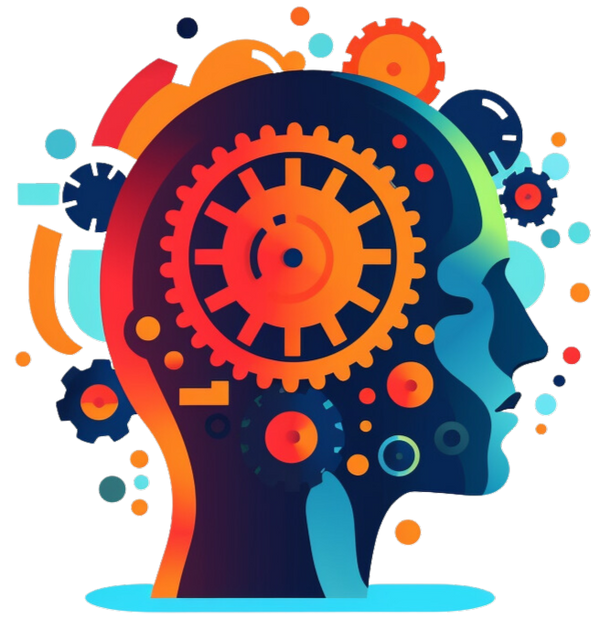
Dopamine: Like a spark plug for the brain and body
Share
What motivates us, what makes us stand still? In our brain, dopamine is the driving force behind motivation and reward. But its effects extend far beyond the head—deep into the body.
It's often described as the " happiness hormone ." And the term " doping " also comes from this. We're talking about dopamine – one of the most important neurotransmitters in the human body. People with ADHD are primarily familiar with its function in the brain's reward system. But dopamine's effects extend far beyond this control center of the mind. It also influences important bodily processes – such as blood pressure, digestion, and the sleep-wake cycle.
Balanced dopamine levels are therefore crucial for our mental and physical well-being. Too little or too much dopamine can lead to serious health problems, such as Parkinson's disease or depression. It can also alter our ability to focus attention, control impulses, and maintain inner and outer calm.
First of all: There are always people who are incorrigible in this regard (dopamine > essential). You can watch this film here: " Awakenings " (1990). For anyone who is still incorrigible afterward: It's NOT the dopamine... 🙂
Dopamine in the brain: concentration, motivation, drive
- The reward system: Dopamine is central to the brain's reward system. It is released when we do or expect something pleasant, thus controlling motivation and pleasure. Increased dopamine levels increase our desire to repeat certain behaviors. However, repetition also leads to decreasing dopamine levels. We all know the feeling: The fourth burger in the month no longer tastes good. Lovers become everyday teams. Or the third glass of wine never tastes as good as the first sip.
- Movement and control: Dopamine is responsible for controlling our motor skills. In the nigrostriatal pathway, it regulates targeted movements and ensures good coordination. A dopamine deficiency in these areas leads to movement disorders, such as those found in Parkinson's disease.
- Attention and concentration: Dopamine supports the ability to concentrate and stay on task. This is particularly relevant in attention-deficit/hyperactivity disorder (ADHD), where a dopamine imbalance leads to difficulty focusing. Medications such as Ritalin increase dopamine levels to improve the frontal lobe's ability to concentrate.
- Learning and memory: Dopamine plays a key role in storing new information and reinforcing learned behavior. It associates positive experiences with certain actions and reinforces them through the release of dopamine. Long-term memory is also modulated by the influence of dopamine. The often unreliable short-term memory in ADHD is a direct result of the divergent dopamine balance in people with ADHD. This has been shown by experiments with mice in mazes.

Dopamine in the body: circulation, metabolism, sleep rhythm
- Regulation of blood pressure and heart rate: Dopamine acts directly on the circulatory system by dilating blood vessels, thus regulating blood pressure. It increases heart rate and the force of cardiac contractions, which are crucial for blood circulation (thus also affecting the subjective sensation of heat and cold). In emergencies, dopamine is used as a medication to stabilize blood pressure.
- Digestion and metabolism: Dopamine influences insulin release in the pancreas, thus regulating blood sugar levels. It plays a role in regulating appetite and digestion. An imbalance in dopamine levels can lead to eating disorders and metabolic problems.
- Sleep and wakefulness: Dopamine is involved in regulating the sleep-wake cycle. It promotes a feeling of alertness and energy during the day and prevents excessive fatigue. A disturbed dopamine balance can cause sleep disorders such as insomnia or daytime sleepiness/lethargy.

Dopamine and its role in diseases and ADHD
The neurotransmitter dopamine is also involved in the development and treatment of various neurological and mental disorders. A well-known example is Parkinson's disease, a neurodegenerative disease caused by a severe dopamine deficiency in the brain . In Parkinson's patients, the dopamine-producing nerve cells in the substantia nigra die, leading to tremors, muscle stiffness, and a lack of movement. Treatment is often with medications that artificially increase dopamine levels (L-dopa).
Dopamine plays a crucial role in attention-deficit/hyperactivity disorder (ADHD) . People with ADHD often have an imbalance in the dopamine system , resulting in difficulty concentrating, impulsivity, and nervousness/hyperactivity. Medications such as methylphenidate (Ritalin, Medikinet, Concerta) or amphetamine (Elvanse) increase dopamine levels , thus improving attention span.

Depression can also be related to a dopamine imbalance (along with a lack of serotonin, another central neurotransmitter). Low dopamine levels lead to a lack of motivation and drive, which exacerbates depressive moods (frustration and stress after not getting enough work done, etc.). In many cases, antidepressants aim to restore the balance of neurotransmitters—including dopamine.
Furthermore , schizophrenia is associated with dysregulation of the dopamine system. An excess of dopamine in certain brain regions is associated with the symptoms of this mental disorder, such as hallucinations and delusions. Medications that suppress dopamine activity can help control these symptoms in therapy.

How to influence dopamine naturally
- Diet: Foods rich in tyrosine (dopamine building block), such as fish, eggs, nuts, and cheese, promote dopamine production. Antioxidant-rich foods, such as fruits and vegetables, also protect nerve cells and thus dopamine synthesis.
- Exercise: Regular physical activity, especially endurance sports, increases dopamine levels in the brain. Exercise not only promotes the release of dopamine, but also improves overall mood and concentration. It can even replace Ritalin. But that usually means a LOT of exercise (several times a day).
- Sleep: Adequate, high-quality sleep is important for regulating dopamine levels. Sleep deprivation can reduce dopamine production, leading to fatigue and low mood.
- Meditation and mindfulness: Mindfulness exercises and meditation can increase dopamine levels by reducing stress and promoting relaxation. These techniques also improve concentration and help maintain a balanced mental state.
- Positive habits: Activities that bring us joy—such as hobbies, music, or social interactions—increase the natural release of dopamine. Small successes or the achievement of goals always reward the brain with a dopamine surge—and encourage the repetition of positive behavior patterns (pursuing a hobby, repeating visits, etc.).
PS: No, dopamine isn't a "happy hormone" per se. Otherwise, Ritalin would make you happy (and so would alcohol, nicotine, and certain illegal substances). This TED talk offers a great overview . And again: watch "Awakenings."

